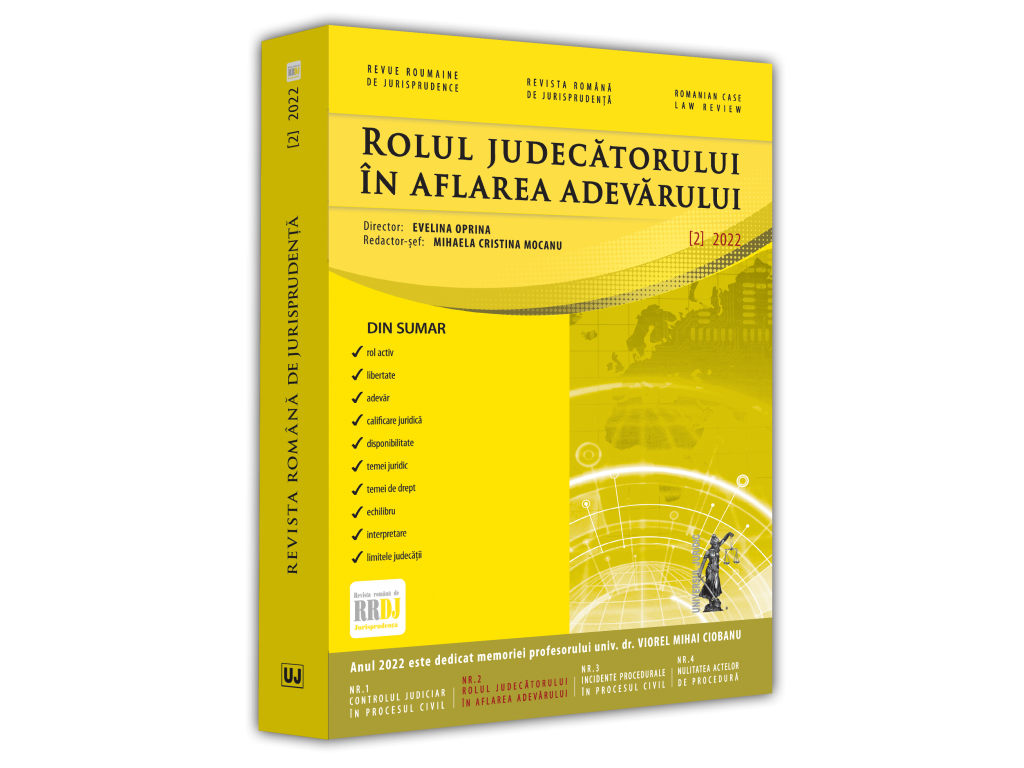The active role of the judge in clarifying the procedural framework from the point of view of the subject-matter of the trial and the subjects of the legal dispute. Limits of the court's jurisdiction.
JURISPRUDENȚĂ COMENTATĂ ŞI ADNOTATĂ
Abstract
However, the identification of the persons justifying passive procedural standing in the case necessarily requires prior clarification of the procedural framework from the perspective of the subject matter of the proceedings, because only the establishment with certainty of the legal situations at issue can reveal which is the passive subject in relation to whom the interest in seeking their realisation can be realised.
In addition to the principal claim by which he brought the legal proceedings, the plaintiff also made additional claims amending the subject-matter and cause of action of the original claim. But the content of the lawsuit is not determined exclusively by the manifestation of will of the plaintiff materialized in the procedural acts of referral to the court, but the object and limits of the lawsuit are determined by the claims and defenses of all litigants, as postulated in art. 9 Civil Procedure Code, but also in art. 22 Civil Procedure Code in which we find concretizations of the principle of availability. From this perspective, the procedural positions expressed by the defendants in relation to the additional claims filed by the plaintiff are also relevant for determining the procedural framework in which the judicial inquiry must be confined, in the normative context provided by Article 204 of the Civil Procedure Code.
None of the parties appealed against the judgment of the Court of First Instance of 2 October 2020. Since the law does not provide that an appeal against the final judgment is also deemed to be brought against the preliminary rulings, the legislator's intention was to require the appellant to indicate the preliminary ruling which it considers to be unfounded or unlawful and which it wishes to challenge. The fact that in the present case the appellants did not intend to challenge the decision of the hearing, means that it is not subject to the scrutiny of the court of judicial review, and it cannot be considered that the appellant implicitly intended to challenge by his appeal the decision rejecting as untimely the amendment of his action.
Therefore, by reference to the enacting terms of the judgment delivered at the public sitting of 2 October 2020.
Once the objective substantive framework of the trial based on the legal employment relationship has been established, the court must proceed to identify the subjects of the legal relationship in dispute, and only they can be considered parties to the proceedings.
Once the limits within which the further analysis of the legal relationship between the parties to the dispute will be confined, it remains for the court, within the limits of the devolutive effect determined by what has been appealed against in each appeal brought in the case, to rule on the points of law on which the parties to the dispute remain in disagreement.








